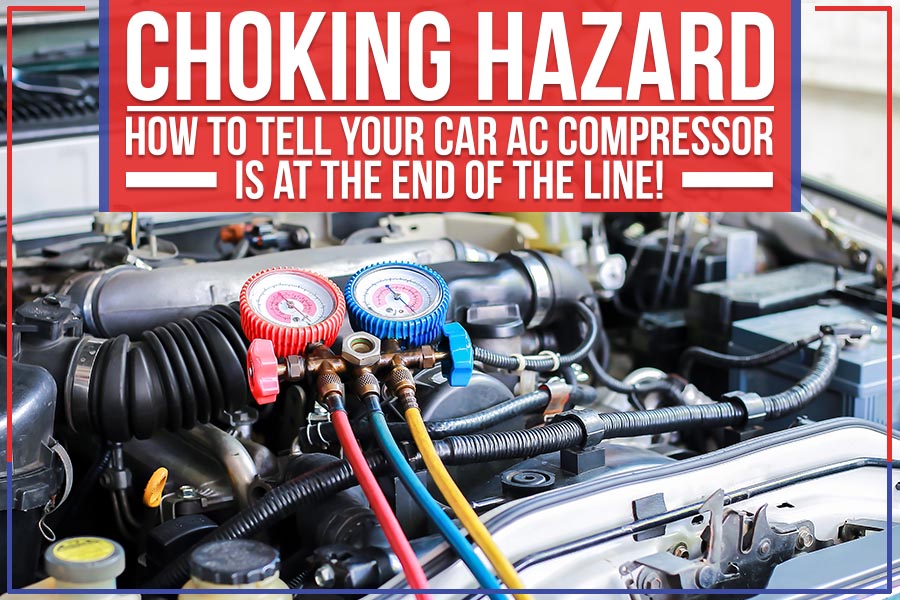
The car’s AC compressor is an integral part of the air conditioning system. It performs as the heart of the system, pumping refrigerant through the valves, radiator, heat exchanger, and cooling vents to ensure you receive a soothing blast of air in your car’s cockpit.
Unfortunately, as is with all things in constant running or long winter hiatus, AC problems develop.
We’ll skip the intangible complexities of how an AC compressor works to tell you that it can suffer from wear & tear and start to fail, leading to inefficient cooling.
You can save yourself the hassle of discovering a faulty AC in the summers by preparing beforehand: check your car’s AC operation by going for a drive and tune your senses to the subtle symptoms of a choking compressor stated below:
1. Cockpit Warmer Than Usual
The most common sign is warm air (even at chilled blast settings) that might indicate debris in the cockpit air filtration. A damaged compressor can fail to regulate refrigerant effectively, and if it’s been a decade since your compressor was in use, it’s time for a replacement.
Another sign is if your AC works better at higher speeds, meaning the compressor is stressed, damaged, or old.
2. Loud Compressor Sounds
In the age of inverter ACs, few of us remember what a domestic HVAC sounded like when its compressor was giving out from age or damage.
The same rattling sounds are made by a car compressor and may be accompanied by a squealing fan belt, indicative of damaged internal bearings. The best course of action is to get a compressor and cabin filter replacement.
3. Jammed Clutch
Unlike the clutch in manuals (another obsolete feature in autos now), the AC compressor clutch allows the belt to power the compressor only when needed to cool when running.
There is a possibility that the compressor is intact but the clutch has faulted and needs replacing, which is nearly a saving grace. If you notice a lack of slight ‘engage’ sound when you turn your AC on, followed by less cooling than expected, it could be a stuck clutch.
4. ECU Warning Lights
Your car’s dashboard lights are there for a reason. And this is handy if you have an OBD-II tool on board; do mind that they work on post-2011 makes, since the model comes with a dedicated port.
So, if there is no such noticeable sign of AC faltering but the ECU light turns on, you can plug in the OBD and look for the diagnostic code for a faulty compressor so you can be sure what to tell at the auto shop to save time. The code is P0534.
5. Fluid/Oil Leak
The refrigerant can leak because of damaged bearings, which will diminish the cooling ability of the AC. The damaged bearings will also leak the lubricating oil in the compressor, resulting in an oil drip that – when combined with low cooling & rattling sounds – will point straight to the fact that the compressor is faulty.
It’s sensible to opt for proactive servicing for your car, so any issues can be fixed before they get severe or costly. If you missed the winter maintenance run, you better get your car over to Feldman CDJR of Woodhaven, serving Monroe, MI, for a thorough check and an HVAC service to get your compressor back on track.
We have service specials, a fantastic auto team, & a dedicated parts store with flexible payment benefits to elevate your service experience.
Don’t forget to book a service with Feldman today!








